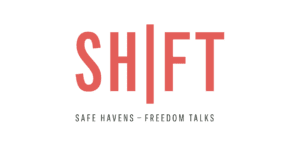ROUTES OF RESISTANCE
Artists, curators, writers and activists have long resisted centres that wield dominant power, choosing instead to place their work and lived experiences at the centre. Inspired by these ways of working we have created a modular exhibition, encompassing practices ranging from Mexico, South Africa, Uganda and Sweden. Together these iterations question the notion of freedom as it relates to creative practice.
The exhibition creates collective narratives that honour diversity and foster mutual respect, all the while recognizing that we seek freedom of expression, freedom of movement, freedom of creativity. This collective seeks to pay homage to our different contexts, divergent paths, diverse methodologies, and multiple languages. Together we expand the notion of freedom beyond the “international human rights” definitions and into meaningful creative responses.
Image credits: Yo migrante 2023 by Vanesa Rivera, Photo by Alma Curiel
ROUTES OF RESISTANCE
Artists, curators, writers and activists have long resisted centres that wield dominant power, choosing instead to place their work and lived experiences at the centre. Inspired by these ways of working we have created a modular exhibition, encompassing practices ranging from Mexico, South Africa, Uganda and Sweden. Together these iterations question the notion of freedom as it relates to creative practice.
The exhibition creates collective narratives that honour diversity and foster mutual respect, all the while recognizing that we seek freedom of expression, freedom of movement, freedom of creativity. This collective seeks to pay homage to our different contexts, divergent paths, diverse methodologies, and multiple languages. Together we expand the notion of freedom beyond the “international human rights” definitions and into meaningful creative responses.
Image credits: Yo migrante 2023 by Vanesa Rivera, Photo by Alma Curiel
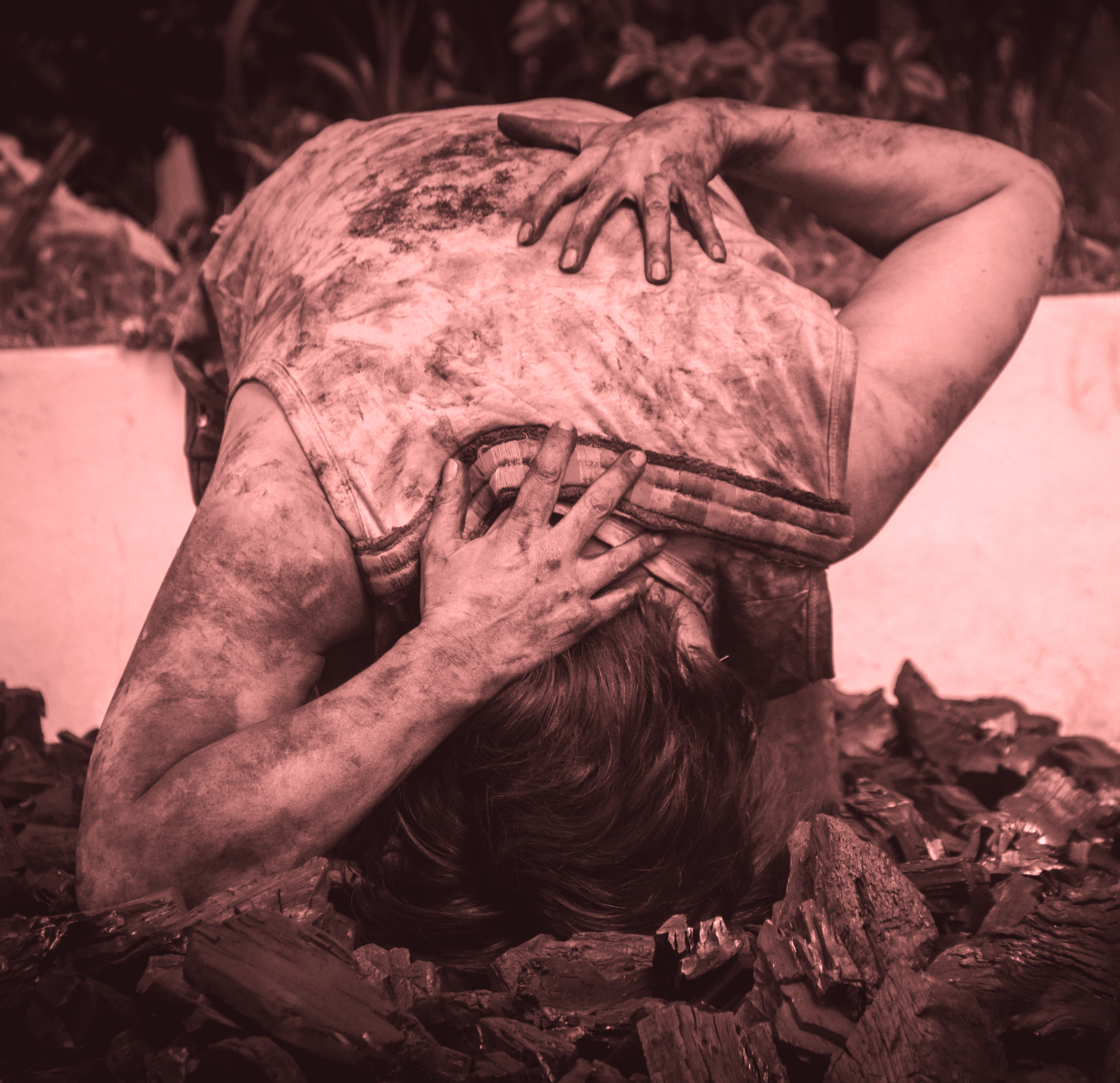
Each exhibition takes on a site-specificity and contextual challenge, consisting of commissioned artworks, collective actions and dialogue events. The four curatorial teams bring a situated knowledge of their point of view, demonstrating a multi-sited collaboration. As a result the iterations speak a polyphonic language of solidarity and action.
In Mexico City, artists linked to the defence of territory and freedom of expression explore the intersection of violence between the state, climate, organised crime, companies and community in the region known as the “Northern Quadrangle”. The Malmö public library hosts a machine-performative art exhibition showcasing works from artists living in various freedom-restricted geo-socio-political realities.
The Kampala edition takes a historical and contemporary look at artistic freedom and insecurity, tracing different eras of political repression in Uganda and East Africa. Meanwhile, practices of collaborative art-making, historically mobilised as weapons of resistance under apartheid, and currently in the new South Africa as tools to explore, critique and defend hard-won freedoms, are led by the District Six Museum in Cape Town.
Finally, an exhibition in Lund – Sweden joins the four located dialogues into one that shows art as a strategy, as well as a territory to defend, resist and praise freedom of speech.
The results are now consolidated at our website with a digital exhibition – project archive, offering downloadable materials.
This project is funded by the Swedish Postcode Lottery Foundation.
CURATORS
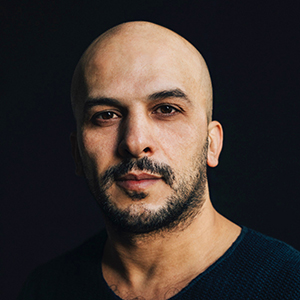
Khaled Barakeh
Khaled Barakeh is a Berlin-based conceptual artist, activist and creative facilitator. He graduated from the Faculty of Fine Arts in Damascus, Syria, in 2005, completed his MFA in 2010 at Funen Art Academy in Odense, Denmark, and a Meisterschuler study in 2013 at the Städelschule Art Academy in Frankfurt, Germany. Driven by his observations of longstanding social injustice, Barakeh approaches creative practice as a tool for societal change; manipulating commonplace visual and cultural touchstones to expose and undermine stagnant power structures. In a recent major shift in his practice, Barakeh developed coculture in 2017 - a non-for-profit umbrella organisation with a suite of initiatives that leverage artistic thinking to directly address issues of contemporary mass migration. Among these projects is the SYRIA Cultural Index and the Syrian Biennale. Barakeh has exhibited at Hamburger Kunsthalle, The 11th Shanghai Biennale, The Frankfurter Kunstverein, Salt Istanbul, The Busan Biennale, State Gallery of Lower Austria, Krems and MKG Hamburg, among many others.
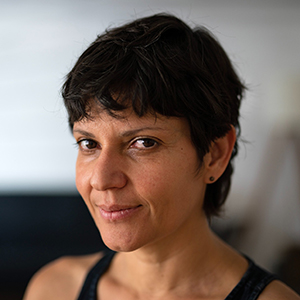
Sofía Carrillo
Sofía Carrillo is a cultural manager and a contemporary art curator. She is the Visual Arts Coordinator at Centro Cultural Universitario Tlatelolco (UNAM, Mexico City), where develops temporary exhibitions and a decolonial study program En plural. Her research interests deal with the archival challenges presented in contemporary art specifically with the complexities related to community-based art. She was the advisor for Museo de Antioquia (Medellín, Colombia) for proposing archival politics for the artistic residence Residencias Cundinamarca; coordinated the preservation program for 650 35 mm. film registrations during 1967-1968 for the Museo Archivo de la Fotografía (Mexico City) and was the Deputy Director in Ex Teresa Arte Actual (Mexico City) where developed and encourage the discussions concerning archival strategies in Contemporary Art. She implemented a curatorial, academic and management action plan for gaining more visibility and healthy practices in Ex Teresa’s Documentation Center.
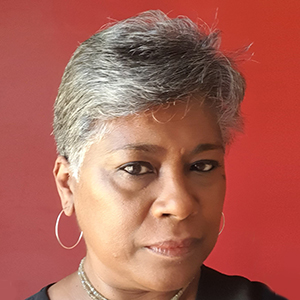
Bonita Bennett
Bonita Bennett started her working career as a high school educator. She has been a social justice activist dating back to her student days in the 1980s, and since leaving the employ of the Western Cape Education Department in 1992, she has been involved in the non-profit space. She is a memory studies scholar and has been active in the memory and museum sector for over 20 years. She currently works as an independent practitioner, with her last full time position having been as Director of the District Six Museum in Cape Town where she remains engaged as a research associate and as a member of its board of trustees.
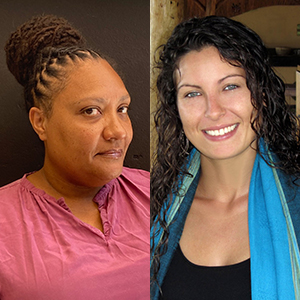
Dr Helga Rainer & Dr Kara Blackmore
Dr Helga Rainer and Dr Kara Blackmore have come together as aligned allies in environmental and social practice. They bring more than 35 years of combined experience in a breadth of disciplines and approaches that encompass ecology, economics, justice, conflict, education, arts, and heritage. Through their work they have contributed to numerous dialogues at various scales that have shifted how the environment and society is perceived. Helga and Kara aim to continue to catalyse important conversations by leveraging the power of the visual arts. They are building Borderlands with an ethos of openness that fosters meaningful collaborations, and contributes to community building. They believe their transdisciplinary approach will have ripple effects far beyond their beginnings in Uganda.

